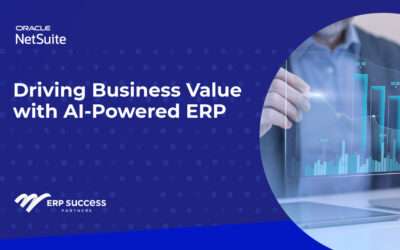Everything You Need to Know About Enterprise Software
Enterprise software is an application that aims to assist different companies and fulfill all their requirements. These include data analytics, sales, marketing management, customer service, and inventory management. Usually, these tools are designed while keeping a variety of users in mind who need integration and high scalability.
Enterprise applications can be found in large companies like governments, hospitals, and construction, as well as in different departments such as customer service, finance, sales, marketing, and more. The software needs methods and processes to manage large data scales. For instance, a company application focused on different construction collaboration projects will have numerous features that will enable professionals to access one solution, which will assist in the generation and sharing of information simultaneously.
Come along as we learn its role, types, different software that you can rely on, and how they can be used to scale your business:
Why is Enterprise Software Important?
As previously mentioned, enterprise software can help massive businesses manage and optimize their operations and tasks more easily, thanks to advanced technologies. This includes collaboration, data analytics, automation, and more. Below, we have composed a list of enterprise software that comes in handy when you need to manage different areas in an organization, such as finance, IT, HR, Marketing, and more. But before we begin learning about popular options, let’s take a look at the importance of them:
Increases and improves organizational efficiency
Enterprise software includes various software that assists in automating tedious and time-consuming tasks that usually take employees hours to complete. This way, teams can work on valuable tasks that can add to the efficiency of operations and result in better business outputs.
Higher productivity of employees
As mentioned above, enterprise apps make the work of the employees efficient by providing features that assist in day-to-day operations on a variety of levels. Eventually, employee efficiency and productivity increase, making it easier to collaborate with different teams.
Better products and services
Enterprise software gives businesses a chance to learn important information, which helps them make informed and better decisions. Having access to all the information related to the product and performance can eventually lead to optimizing bottlenecks and offering the best outcomes in terms of services and products for the customers.
Improving customer satisfaction
Internally working organizations usually have a great influence on how customers perceive them later. Enterprise applications help businesses manage their workflow to keep their clientele happy and return for more. Software such as marketing automation or CRM provides a collective view of customer data to understand what works and what doesn’t.

Types of Enterprise Software
Different types and brands of enterprise software systemsare readily available online to access and subscribe to. Here are some examples below:ERP or Enterprise Resource Planning
ERP or enterprise resource planning is software that assists organizations in managing different procedures related to the business, such as HR, sales, supply chain, payroll, and project management, through a centralized system. It assists with the following tasks:- In the automation of tasks and in simplifying different business processes.
- Managing organizational data through different sources.
- Ensuring operational efficiency and boosting profit.
CRM or Customer Relationship Management
Organizations use the CRM or customer relationship management and connect with the center software for the following tasks:- Managing customer relationships better.
- Developing insights into the needs of customers through the provided data.
- Deliver a better experience to existing customers.
- Making informed decisions about potential prospects.
Business Intelligence
Business intelligence is the enterprise application that gathers all data that was previously used in different locations. They gather the data through the cloud, spreadsheets, and even on-premise data centers. Everyone within a company gets a consistent view of the information through dashboards. Business intelligence can assist teams with the following as well:- Gain valuable insights into the different business processes.
- Make strategic decisions
- Avoid any time-consuming manual analysis.
Supply Chain Management
Supply chains are complex global connections of suppliers, logistics, retailers, and manufacturers that come together to deliver different services and various goods. Every company needs a solid digital infrastructure to coordinate and manage supply chain tasks, which include the following:- Auditing supplies
- Sending invoices to suppliers
- Production updates
- Tracking of goods
HRM or Human Resource Management
Enterprise software for the management of HR is usually made up of tools that help to oversee and control different functions, such as:- Payroll
- Hiring and training of staff
- Managing leaves annually
- Talent engagement and retention






